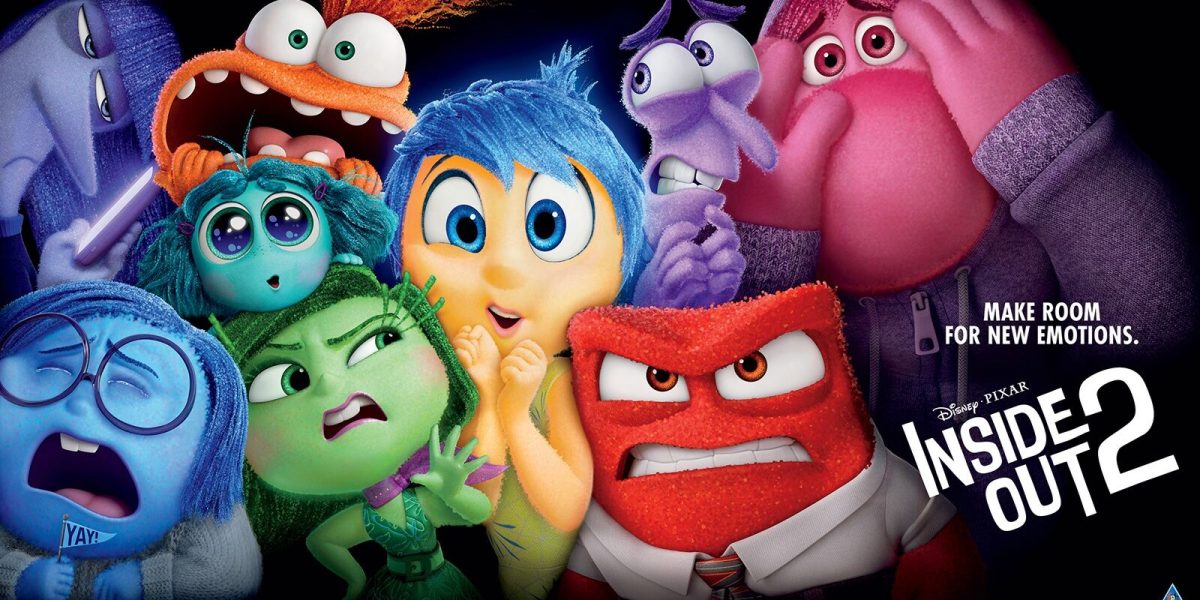In recent years, a particular technique has bounced its way back into the music scene: 80’s beats and sounds. As a fan of most 80’s music (especially bops like Toto’s “Africa” and Paul Simon’s “You Can Call Me Al”) and popular bands of today, I appreciate the resurgence of these nostalgic sounds. So when my favorite band, Paramore, released their most recent album After Laughter in May 2017, I instantly fell in love with the group’s new pop-ish style (especially after listening to the album in its entirety about four times a day for a week).
If you know anything about Paramore, you most likely wouldn’t categorize them in the ‘pop’ genre of music. The band made their debut in 2005 with their first studio album, All We Know is Falling, which has the same anger and emotion as a scene haircut, fishnet arm-warmers, and Converse sneakers covered in Sharpie doodles. Paramore kept up with the classic ‘emo’ image with their second album, Riot!, in 2007. With iconic tracks like “Misery Business”, the Riot! era of Paramore is more often than not the image of Paramore ingrained in most minds. Their next two albums titled Brand New Eyes and Paramore a.k.a. Self-Titled (2009 and 2013 respectively) contained some of their most famous chart-toppers, from Brand New Eyes’ “The Only Exception” to Self-Titled’s “Ain’t It Fun” and “Still Into You”. While there was still a clear resemblance between these two albums and the two preceding them, the beginning of Paramore’s metamorphosis was clear.
It’s now the year 2017, four long years after the release of Paramore’s self-titled album, and the release of After Laughter’s first single, “Hard Times” left fans with tons of questions for the rest of the album. When I first listened to “Hard Times”, I was floored. The song was different from the group’s older music while still reflecting the essence of the album that preceded it. The song’s introductory steel drum immediately gives off a care-free vibe, much to the contrast of the song’s lyrics. With lyrics written by frontwoman Hayley Williams like “all that I want is to wake up fine,” and “tell me that I’m alright and I ain’t gonna die,” paired with energetic beats and lighthearted guitar, the album’s happy exterior and dismal interior is established early on.
With the second single “Told You So”, Williams starts the song out with her soft yet strong vocals that feel almost like a punch in the face (but in a good way), and guitarist Taylor York and drummer Zac Farro join in to create one of the albums more danceable tracks. While this isn’t my favorite track on the album, I give the group props for their versatility and growth. The song’s music video is also one of my favorite music videos of all time with vivid red and white imagery and deadpan expressions that let the lyrics speak for themselves; the video feels a lot like what an episode of Twin Peaks directed by Wes Anderson would look like.
In keeping with the ‘emo’ lyrics paired with the happier, upbeat melodies like in “Hard Times”, track “Fake Happy” is the textbook example of masking lyrics with happy tunes. I would have to say that this song is my favorite on the album. The song starts out with William’s lone vocals paired with York’s guitar, tricking listeners into thinking the rest of the song is going to be an emotional acoustic ballad. When I first heard the synth bounce into my earbuds, I was caught completely off-guard. Once the drums came in, I knew this was going to be my favorite song on the album. Of course, like many fans, I was unaware of the emotion of the lyrics until the second time I listened to it. With a chorus like “don’t you ask me how I’ve been, don’t make me play pretend” and “I know everybody here is fake happy, too,” the more I listened to the song, the more I was weighed down by it. Nonetheless, I love the song and listen to it at least four times a week.
When After Laughter first came out, there was lots of discourse among fans about Paramore’s new look and style. Apart from their new sound, Hayley Williams ditched her iconic orange hair for an all-white look, officially marking the newest phase of the band’s growth. I am happy for Paramore and their growth and exploration of new sounds, but some fans aren’t feeling the same way. Many think Paramore’s newest album is too far off from their older stuff, and that they are no longer in the same genre as before. While After Laughter’s singles “Hard Times” and “Told You So” are more on the pop side, other tracks like “No Friend” and “Idle Worship” still hold to the group’s original sound while mixing in some fresher elements. To me, Paramore is still a rock band and After Laughter goes along with that. A genre of music can’t stay the same forever, and the change Paramore has brought to the table is definitely a game-changer, if not for the entire rock genre than for the band themselves.
I would highly encourage everyone to listen to Paramore’s After Laughter, whether you need a song to dance to, cry to, or just to contemplate your life to. The album is available on Spotify for streaming and iTunes for purchase.



